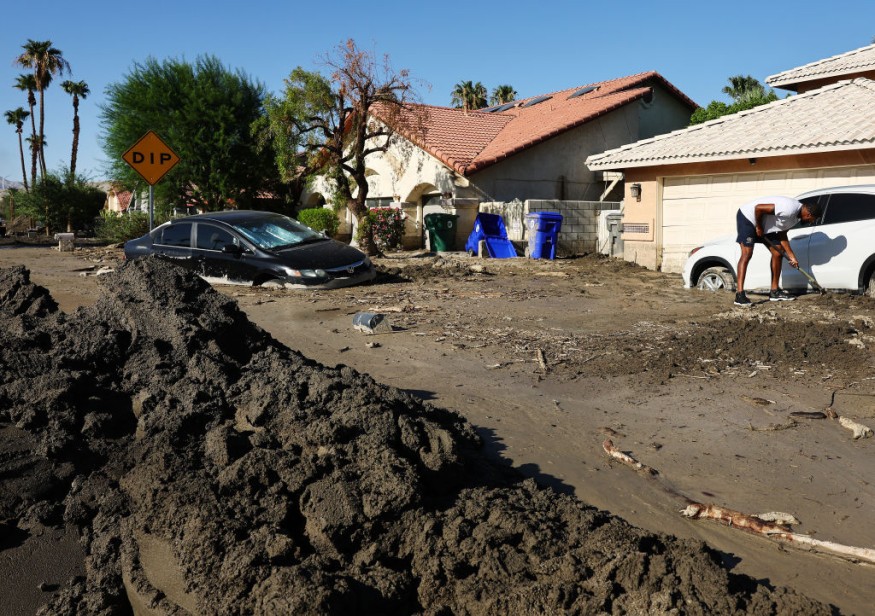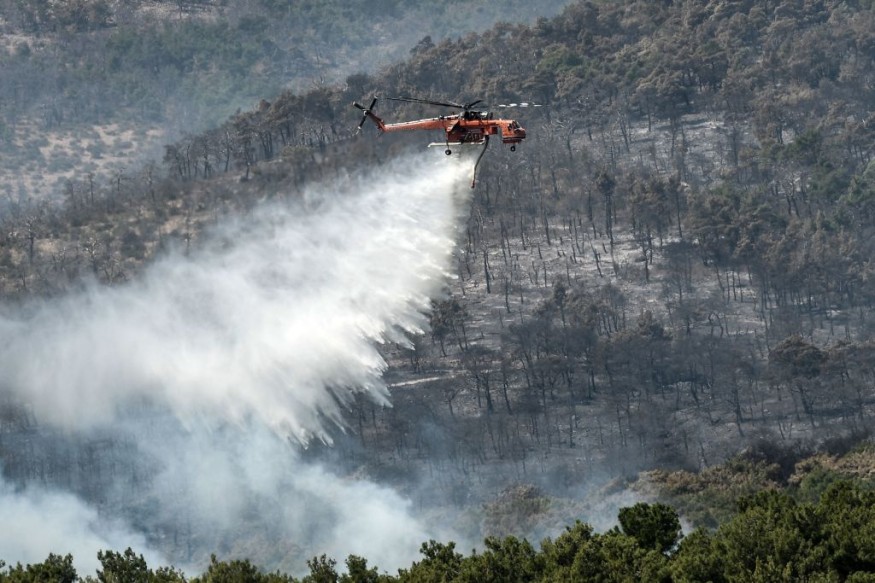Experts explained that climate change played a significant role in the rapid intensification of extreme weather events. Hurricanes, wildfires and prolonged drought can significantly impact human lives and environments.
Rapid intensification of hurricanes due to climate change

As September begins, active hurricanes are most likely to emerge. Hurricanes and tropical storms can unleash severe weather conditions:
- Landslides
- Flooding
- Torrential Rain
- Mudslides
- Evacuations
- Flash flooding
Recently, Hurricane Idalia hit parts of Florida's Gulf Coast, Eastern Carolinas and the Big Bend Region in August and early September. Meanwhile, tropical storm Hilary unloaded heavy rain conditions in Southern California.
According to an expert, Andrew Grigg, the Gulf of Mexico experienced a noticeable increase in hurricanes' frequency and rapid intensification in recent years.
Grigg is a weather historian and an MA student in Environmental Science.
Grigg added that the trend of hurricanes can be attributed to the climate change effects. Grigg also began a blog called Climate Conduit that provides perspectives and articles about climate, environment and weather conditions.
"The key factors driving this phenomenon include warmer sea surface temperatures, which provide more energy for hurricanes to intensify and rising sea levels that exacerbate storm surge impacts," according to Grigg.
The recent Communications Earth and Environment report showed climate change could fuel back-to-back or shift from flooding to drought conditions. The frequency of shift could make it more challenging for communities to prepare.
Grigg added that climate change could help shift atmospheric circulation patterns. It can allow hurricane development to intensify due to favorable conditions.
The ocean's role in climate change
As global warming unleashes more heat, the ocean plays a crucial role in absorbing the heat and greenhouse gas emissions. It could likely influence the intensification of possible storms or hurricanes.
"Warmer ocean waters supply the fuel that hurricanes require to thrive," according to Abner Miller, who is also an environmental scientist at starlinkhow.
Miller explained that warm waters and global temperature rise could likely accelerate hurricane formation. He mentioned that "every 1°C increase in sea surface temperatures, storm intensity increases by 5% to 10%.
Climate change has a crucial role in sudden or unprecedented excessive rainfall.
According to Miller, the warmer air has more moisture, which can unload stronger storms and rain. The result can cause dangerous flooding and damage to infrastructures.
People near the coast or flooded-prone areas can become at risk of hurricane impacts, especially in poorer countries.
As a result, weather forecasting and improved warning systems can help anticipate the impacts of intense weather events.
Climate change linked to wildfires

Climate change is also a key driver in prolonged drought and extreme wildfires. The human-caused activities has caused all-time greenhouse gas emissions.
Grigg explained that wildfire frequency in parts of Canada and the Western US is linked to climate change. The role of rising temperatures and prolonged droughts are conducive conditions to wildfires, including dry vegetation.
"Climate change can lead to altered precipitation patterns, reducing rainfall in certain regions and contributing to drier conditions that increase the risk of wildfires, " Grigg said.
In a study in Environmental Research Letters, researchers warned of the unusual autumn wildfire in California that caused widespread power outages and safety concerns. The favorable conditions could unleash unprecedented fires.
On the other hand, Miller noted the the infernos in the making or the increasing wildfires in parts of the Western United States and Australia.
"Long periods of high temperatures and drought produce tinderbox landscapes. The changing climate exacerbates these conditions, increasing the likelihood of wildfires erupting and spreading quickly," Miller added.
According to a report in Ecosphere, researchers warned that fire frequency could result in potential ecosystem collapse, affecting animals sensitive to heat.
In Australia, low-intensity fires harm the habitats of riparian birds, causing a significant impact on the rare and threatened population of Purple-Crowned fairy-wrens.
In the US and Canada, the greenhouse gas emissions contributed by 40% to deadly wildfires in US and Canada.
Also Read : Summer Reaches Hottest On Record; Warmer Temperatures Become Unusually Frequent, Reports Warn
Climate change can prolong drought conditions and heatwaves
Grigg explained that prolonged drought conditions and heatwaves are also linked to climate change, especially the extreme heat waves in the Pacific Northwest in 2022.
"In various parts of the world, climate change is associated with an increased likelihood and severity of droughts, " Grigg said. He noted that higher temperatures can likely lead to reduced soil moisture and water scarcity, impacting water resources and ecosystems.
In addition, Miller explained that the rising temperatures would result in high temperatures that cause the water supply to dry up, leading to problems in food security.
In the US, the American Red Cross warned of the health impacts of extreme heatwaves, bringing more risks to people without cooling conditions and vulnerable sectors.
Intense heat can kill more people than other natural weather events.
In Europe, a recent study in Nature Medicine showed that 61, 672 deaths were linked to heat illnesses due to challenging heatwaves in 2022 based on the record between May 30 and September 4.
Meanwhile, soaring temperatures can harm coral reefs and aquatic animals, making survival challenging amidst the heat. The rising global temperatures impact human health and food security without mitigation efforts.
Extreme weather event significant damages
Extreme weather events can result in a devastating aftermath, especially to biodiversity and ecosystems.
In the US, NOAA records showed the country suffered from heavy losses due to billion-dollar weather disasters.
- Since 1980, the US has experienced about 363 weather disasters. The disaster cost reached $2.590 trillion.
- This year (2023), at least 15 weather disasters occurred in the country, of which 13 refer to severe storm events.
- Yearly, at least 3.3 million adults in the US are forced to relocate or displaced due to extreme weather and natural disasters.
Climate change is a societal and environmental problem, together with global warming. The increasing burning of fossil fuels, the greenhouse effect, and deforestation can worsen the impacts of climate change.
Preparing for extreme weather events
As extreme weather events become more frequent, preparations and disaster management are essential to prevent devastating impacts. Widespread loss of infrastructures and lives could happen without efficient weather forecasting.
Countries are advised to invest in disaster-resilient plans and improved weather-predicting tools to mitigate the possible effects of human-induced hurricanes or heat waves.
Better forecasting can efficiently warn and suggest to communities to anticipate the shift from drought to extreme rainfall.
Moreover, coordination with local, regional and national forecasting agencies is essential to inform communities about possible weather events.
Homeowners can also prepare by turning on their mobile disaster alerts or checking the weather outlook. Keeping home emergency kits is also vital during evacuations.
Related Article : Fire Frequency Can Cause Ecosystem Collapse, Research Shows
For more similar stories, don't forget to follow Nature World News.
© 2026 NatureWorldNews.com All rights reserved. Do not reproduce without permission.





